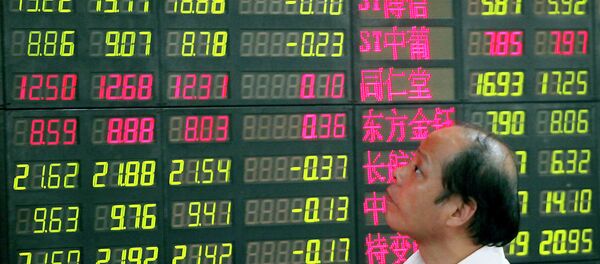In China, there are now only 33 sectors that foreign capital is banned from working in, instead of 40. For some sectors, the restrictions have been fully lifted. China has pledged to significantly increase the access of foreign capital to the domestic market by 2021. However, Beijing has decided to implement some of its plans ahead of schedule.
According to China’s National Development and Reform Commission, restrictions on foreign capital shares for the banking, insurance sector and brokerage services will be abolished in July this year. Previously, there were limits of 51% for foreign participation. Some foreign financial companies have already applied for full control over joint ventures in China. In particular, JP Morgan was the first company to receive permission to transfer its business in China under its full control. Other major global players – UBS Group AG, Nomura Holdings Inc. and Credit Suisse – followed suit, as they applied to expand their stakes in their joint ventures with China.
China will prematurely reduce restrictions on the access of foreign capital to the domestic market, said Li Keqiang, Premier of the State Council of China, during last year's economic forum in Dalian, also known as “Summer Davos”. The same year, China adopted the Foreign Investment Law (FIL), which expands the access of foreign capital to the Chinese market and balances the rights of foreign and local companies. Moreover, at that time, a short truce was reached in the trade war between China and the United States after negotiations between the leaders of the two countries in Osaka.
Today, despite a new round of escalation of relations between China and the US – in new realities, claims by Washington of stealing American technology and unfair trade policy by China have been added to the accusations of concealing data on coronavirus spreading – China has still decided to pursue domestic market liberalisation. The updated stop-list for foreign investment has been reduced to 33 industries. Now foreign businesses can invest in gas and heat pipeline infrastructure in cities with a population of over 500,000 people, in the processing of radioactive materials and nuclear fuel, and in traditional Chinese medicine. Furthermore, from now on the foreign investment ceiling limit has been increased to 66% in such areas as wheat breeding and seed production.
Despite the clear trend of de-globalisation in some Western countries, as well as the decline in global investment activity caused by the slowdown of economies due to COVID-19, China, on the contrary, is seeking to attract more foreign investment. According to Rhodium Group, the number of M&A deals by foreign companies of Chinese partners has increased sharply in the last 18 months. The major activity is carried out by American and European companies. For example, Volkswagen acquired control over Anhui Jianghuai Automotive for $1.1 billion. Moreover, the German carmaker bought a 26% stake in the Chinese manufacturer of batteries for electric cars Guoxuan High-Tech for $1.2 billion.




